After the U.S. and Europe imposed sanctions on Russia, it triggered a massive devaluation of the country’s currency – ruble. Russians lined up at ATMs to withdraw their money. The Bank of Russia immediately hiked the interest rates to 20% to slow the withdrawal, as the ruble plunged 30% against the US dollar after the ban of Russian banks from the SWIFT system.
Indeed, the financial sanction was more lethal than economic sanction like the trade war between the U.S. and China. The reason why the Russian currency collapsed so easily and quickly was because the U.S. and its allies shut off the Russian central bank’s access to most of its US$630 billion of foreign reserves – effectively emptying its coffers critical to support the rubles.
,
Using such a weapon was extremely unfair and ruthless, even though it is highly effective to cripple the Russian economy in order to pressure Vladimir Putin. This may not be a good example, but can you imagine your savings in the piggy bank suddenly being seized because you display rebellious behaviour? Who gives big bully America the right to confiscate Russia’s savings?
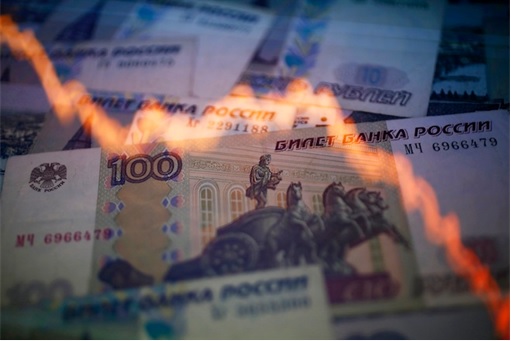
The weaponizing of the monetary system is dangerous because whenever the U.S. and its allies like, they can simply deny access to your reserves or savings being kept abroad. It was like a daylight robbery. Just because the U.S. and NATO were too afraid to go to war with Russia, they took the easy way out by pulling the plug off the access to Moscow’s foreign reserves.
In truth, this is not the first time the U.S. has played dirty. During Trump administration, the U.S. president floated the idea of deliberately defaulting on nearly US$1.1 trillion in U.S. Treasury bonds held by China. It means the U.S. wanted to unilaterally cancel all the debts it owed to China with a snap of a finger. So, after borrowing the money from China, the U.S. said those I.O.U. papers are worthless.
During the Crimean War (1854-1856), Britain, France and Russia fought for the territory of modern-day Ukraine, killing hundreds of thousands of people. Yet, throughout the war, the British Treasury kept paying its debts to the Tsarist government, and Russia kept paying interest to British owners of its sovereign debt. There were still code of honour during ancient time.
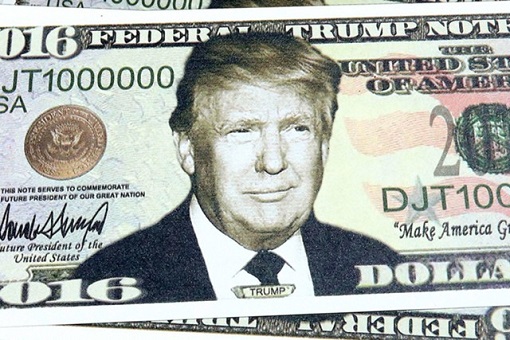
A British minister once said in “civilised nations”, public debts should be paid to an enemy even during war. However, according to Donald Trump and Joe Biden, instead of paying debts to the enemy, the American standard today is to paralyse its enemies’ economy – even if it means stripping away their rightful foreign reserves.
It’s unclear whether Russia will get back its US$630 billion of foreign reserves. But the financial sanctions have raised the burning question – why should a country accumulate US dollar when it could easily be taken away? Would it not be safer to buy other assets such as gold as reserves? Even the idea of stockpiling commodities like crude oil or other metal sounds like a better alternative.
Beijing is watching and studying the financial sanctions imposed on Russia to understand how the Western powers might react to an invasion of Taiwan, or any types of confrontation that may challenge the American supremacy. China wanted to know how to insulate, or at least minimize the impact, of a similar financial sanction in the future – if it decides to confront the U.S. heads on.

In the case of Russia, Putin most likely had calculated that in the worst case scenario, the country will still survive. That’s because it has two trump cards – China and oil. The country still earns an estimated US$20 billion a month due to exports of oil and gas, which the European Union has no choice but keep buying. The EU depends on Russia for about 40% of its natural gas and 27% of its oil.
Like it or not, the financial sanctions are hurting European business and people as much as it hurts Russia. But the use of the powerful weapon could backfire on the US dollar as it has raised the risks and fears of similar consequences if any country disagrees with the United States. If the U.S. could use it against Russia, what is there to stop the U.S. from abusing the same weapon on other smaller countries?
China’s foreign exchange reserves stood at US$3.25 trillion (Dec 2021), the largest stockpile in the world, followed by Japan’s US$1.4 trillion. During the US-China trade war, there were talks that Beijing could weaponise its massive foreign reserves. After Trump’s proposal not to honour the U.S.’ debts and Biden’s financial sanctions on Russia, suddenly it becomes incredible dumb to treat the dollar as safe assets.
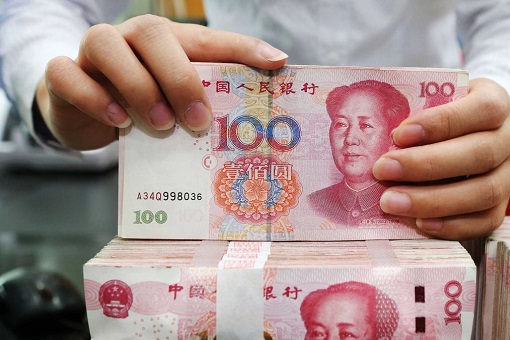
Beijing’s refusal to condemn Moscow’s invasion of Ukraine has been expected. But the message behind it could mean many things. It has been a source of strength for Russian President Vladimir Putin. It also reflects Beijing’s desire to weaken the U.S. grip on the global financial system as the sanctions provide justifications to turn Renminbi into an alternative to the dollar.
It has been China’s desire to leverage on its status as the world’s second largest economy to challenge, or at least unshackle itself, from the dollar-dominated system. It did not make sense for Renminbi to be converted to US dollar to buy Russian oil and gas. Likewise, it did not make sense for Ruble to be converted to US dollar before Chinese electronics can be purchased.
The sanctions, which block seven large Russian banks from transacting in Dollars, Sterling or Euros and cuts off the Russian central bank from accessing dollar and euro-denominated reserves, have sent a very clear message to China that it must give priority to diversion from the dollar. For example, it should increase its trades with its Asian neighbours that are denominated in Renminbi.
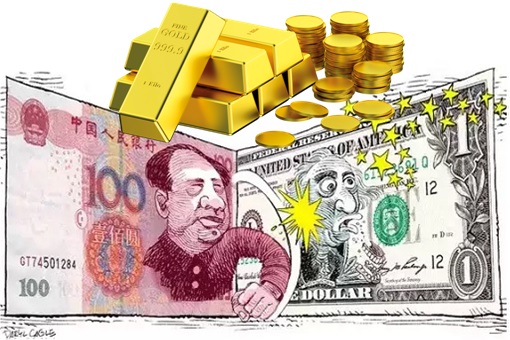
Carl Weinberg, founder and chief economist at High Frequency Economics, said – “Other than its gas supplies to Europe, Russia doesn’t have economic leverage. However, if China were to put an embargo on exports to the U.S., the whole American economy would grind to a halt”. Essentially, the Chinese has all the ingredients to give the US dollar a bloody nose.
China’s version of SWIFT, Cross-Border Interbank Payment System (CIPS), has signed up Russian banks, allowing both nations to trade and bypass US dollar. This is an example how the Russian sanctions have given a boost to China’s payment system for cross-border transaction. The sanction indirectly provides free marketing for the Chinese payment system.
Russia had accumulated a war chest of foreign-exchange reserves – mostly in dollars, euros, pounds sterling, and Chinese Renminbi – to protect the ruble’s value at times of economic or geopolitical turmoil. When the sanctions hit, Russia still had an estimated US$77 billion (13% of total reserves) in Chinese assets, which are spared. This could inspire other countries to shift to the Chinese currency.
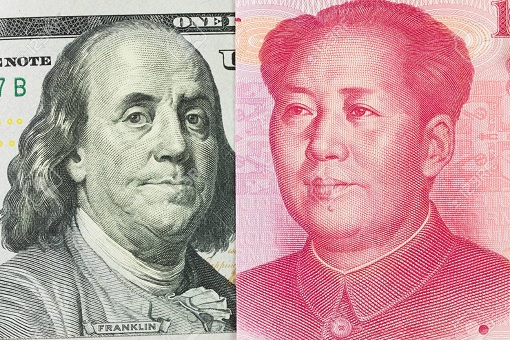
In 2020, Yuan-denominated financial assets held by overseas institutions and individuals surged 40.11% year-on-year to reach 8.98 trillion Yuan (US$1.39 trillion). Cross-border use of the Renminbi, including payments and receipts, soared 44.3% year-on-year to 28.39 trillion Yuan (US$4.4 trillion) in the same year. More than 70 countries, have Renminbi in their reserve assets.
As the world’s second largest economy, it should be relatively easy for China to promote its CIPS as an alternative to settle international claims in Yuan or Renminbi. It’s a wake-up call to other countries, who might now think twice about putting too many eggs in the Western basket. The adoption of the Chinese currency will certainly weaken the dollar’s international clout.
Besides CIPS, China’s digital currency or Digital Yuan (or e-CNY), which has been given a good exposure during the Beijing Winter Olympics, is expected to hasten the process of Renminbi internationalisation. Because Russia does not have an established digital currency of its own, cryptocurrency has become very valuable to individual Russian right now.
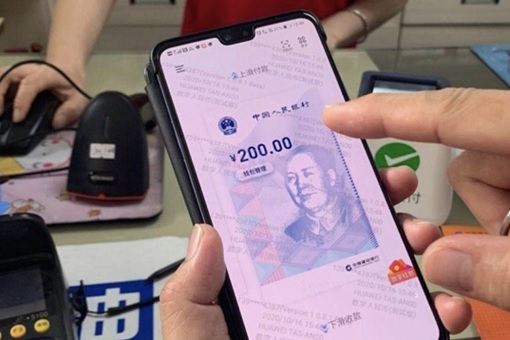
Still, it’s not easy to overthrow the US dollar as the world’s preferred currency for international payments. The Renminbi remains a nonconvertible currency because the Chinese government wanted to restrict capital flows across its borders, not to mention the tight management of the currency to avoid speculations, like how George Soros broke the Bank of England in 1992.
China also lacks a strong and transparent institutional framework, without which private investors are unlikely to place their trust in the Renminbi as a reserve currency. So the magic word is “trust”. US dollar becomes the world’s reserve currency largely because most countries trusted the currency. It didn’t help that the West has consistently painted China as an untrustworthy government.
However, it’s a simple logic that as the world’s second largest economy, the trustworthiness of Renminbi has been increasing proportionately because the Chinese government cannot afford to see an unstable currency. One can also argue that the US dollar is not that trustworthy after all since the issuer – the U.S. government – can forfeit your reserves or declare them worthless.
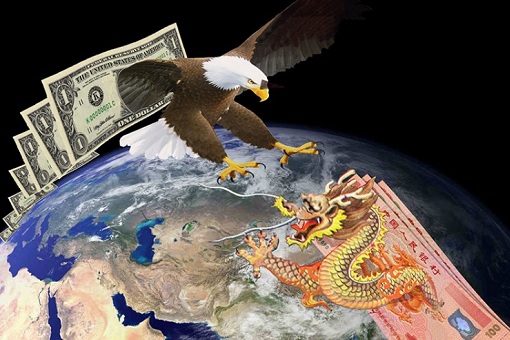
Other Articles That May Interest You …
- Global Recession And $300 Oil – Russia Threatens To Weaponize Oil, Biden Scrambles For Help From Other Dictators
- China Creates Digital Currency – Here’s Why It’s A Big Deal To The World’s Economy, And A Big Problem For The U.S.
- Economic Destabilization – How China Prepares For American & Japanese Military Interference In Taiwan Conflict
- China Has Swiftly Retaliated Against The EU Sanctions – And This Could Affect The Europe’s Investment In China
- Printing Money – The Stupid Backdoor Deputy Minister Who Thought Malaysia Ringgit Is As Powerful As US Dollar
- Lawsuits For Trillions Of Dollars Against China Over Spread Of Coronavirus – Here’s Why It’s A Waste Of Time
- This Chart Shows How Coronavirus Has Turned Asia’s Best Performing Currency In 2019 To The Worst This Year
- Xi Jinping Says “No Force Can Stop The Chinese”, Shows Nuclear Missiles Which Can Hit The U.S. In 30-Minutes
- China Strikes Back!! – Trade War Becomes Currency War After Suspends U.S. Agricultural Goods & Devalues Currency
- From Trade War To Tech War – After 5G Technology, The US Aims To Cripple China’s Artificial Intelligence
- North Korea’s 10 Clever Tactics To Evade Economic Sanctions

|
|
March 12th, 2022 by financetwitter
|


|

|

|

|

|

|




























Comments
Add your comment now.
Leave a Reply